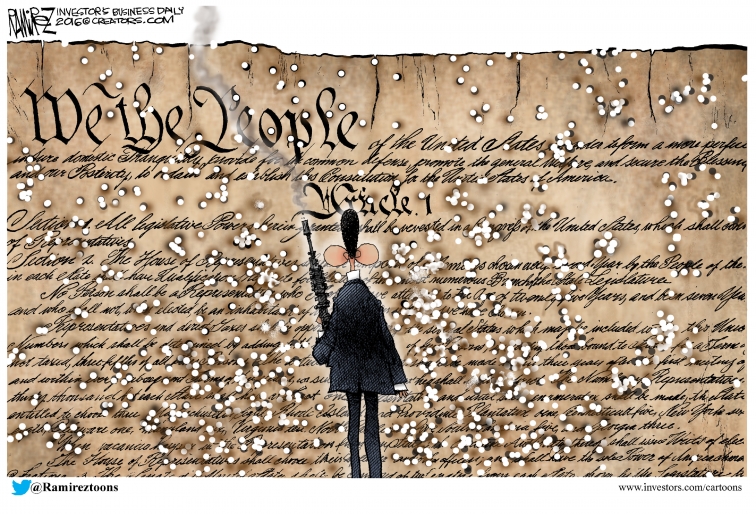CFIF steadfastly supports both free trade and strong intellectual property (IP) protections. Each has played an invaluable role in making America the most innovative and prosperous nation in human history, and each is important if we hope to maintain that primacy through the 21st century.
In that spirit, we hope to ultimately support the Trans Pacific Partnership (TPP) after our own reasoned analysis.
Even the cleanest trade agreements tend to be complex, and the TPP is no exception. Along with so many other conservative and libertarian organizations, we are therefore carefully examining the TPP’s provisions in determining whether to ultimately support the agreement.
Making that determination in an intelligent and good faith manner, however, requires that the debate remain grounded in accurate, reliable and pertinent information. But opponents of free trade and strong IP protections have undertaken a campaign to confuse and frighten the electorate through distortion.
An organization named IP Watch offers a perfect example of such tactics, with a recent piece about the TPP’s dispute resolution provisions known as the Investor State Dispute Settlement (ISDS) process. IP Watch contends that, by virtue of the ISDS, “foreign corporations [will have] a huge advantage in IP disputes – private arbitrations that can override courts and statutes, effectively rewriting a nation’s IP laws,” but the simple reality is that ISDS provisions are common to international agreements and unremarkable.
Simply put, an ISDS process allows companies doing business abroad to protect themselves against unfair treatment such as discrimination and government seizure of their property, known as “expropriation.” Over 3,000 international agreements include a process to resolve these problems, but many stubborn opponents of free trade and IP rights oppose these dispute resolution mechanisms, which are designed to give American companies similar protections to those enjoyed by foreign companies doing business in the U.S.
For its part, the TPP includes countries around the Pacific Rim, collectively accounting for about 40% of all global trade, and like the 3,000 other international agreements referenced above, it includes an ISDS process to level the playing field for American companies doing business overseas. Additionally, like so many other previous trade agreements, the TPP broadly exempts IP from the ISDS process unless the IP was expropriated and the expropriation violates the IP provisions of either the TPP or the World Trade Organization (WTO).
Those opposed to free trade or strong IP rights, however, don’t like the idea that companies possess that option to protect themselves, particularly companies that rely on IP protections. Their attack on the ISDS process as it applies to IP is an opportunistic and cynical attempt to achieve their larger aim, the erosion of IP protections for creators and innovators.
Further, in practice it’s not easy to win an ISDS case. First, an investor must prove that there was either direct expropriation (the government forcibly comes in and seizes the property, claiming now to be the legal owner of it), or indirect expropriation (the same effect as direct expropriation but without the outright seizure). That is drawn from U.S. law, and the U.S. Constitution itself, per the Fifth Amendment provision that, “nor shall private property be taken for public use, without just compensation.” Moreover, the particular standards in the TPP for proving whether there has been an “expropriation” (e.g., “taking”) are drawn directly from a Supreme Court ruling on the Fifth Amendment in Penn Central Transportation Co. v. New York City (1978).
Accordingly, it should alarm readers of IP Watch that the anti-trade, anti-IP crowd has thus gone so far as to malign concepts contained in the Bill of Rights itself.
In addition to demonstrating an expropriation of IP rights, the TPP requires a company to prove that the government action violated the IP provisions of either the TPP or the WTO. And those rules are the product of agreement by the governments of nations of all perspectives from across the globe, and constitute the basic levels of protection for IP.
That’s why companies bring so few cases. Tellingly, only 13 cases have ever been brought to conclusion against the United States, and we won all of them.
There’s another factor that must be considered as well. Namely, if you are an American company doing business abroad, where you rely on the local authorities for police protection and hope for fair treatment by the government and judges, how eager would you be to start a lawsuit against the whole country? You, your board of directors and your shareholders would think long and hard about that one.
The ISDS process is a fair and appropriate one, but realistically, companies are only going to resort to it when their backs are truly against the wall.
Anti-trade and anti-IP interest groups and advocates will likely continue to publish misinformation about the TPP and its IP chapter in an attempt to scuttle the deal. Indeed, activists are openly advertising that they will try to incite people, even though the TPP’s IP provisions are all drawn from U.S. law and have been in other trade agreements for years.
Hopefully, however, the preceding points help cut through the click-bait and hyperventilation that characterizes their rhetoric, so reasonable people can draw their own conclusions about the TPP based on fact and principle.


 In an interview with the Center for Individual Freedom, William Yeatman, Senior Fellow at the Competitive Enterprise Institute, discusses the EPA’s Clean Power Plan overreach and why the Model FIP is a cap-and-trade policy and thereby raises concerns under the Tenth Amendment of the U.S. Constitution.
In an interview with the Center for Individual Freedom, William Yeatman, Senior Fellow at the Competitive Enterprise Institute, discusses the EPA’s Clean Power Plan overreach and why the Model FIP is a cap-and-trade policy and thereby raises concerns under the Tenth Amendment of the U.S. Constitution.
 CFIF Freedom Line Blog RSS Feed
CFIF Freedom Line Blog RSS Feed CFIF on Twitter
CFIF on Twitter CFIF on YouTube
CFIF on YouTube